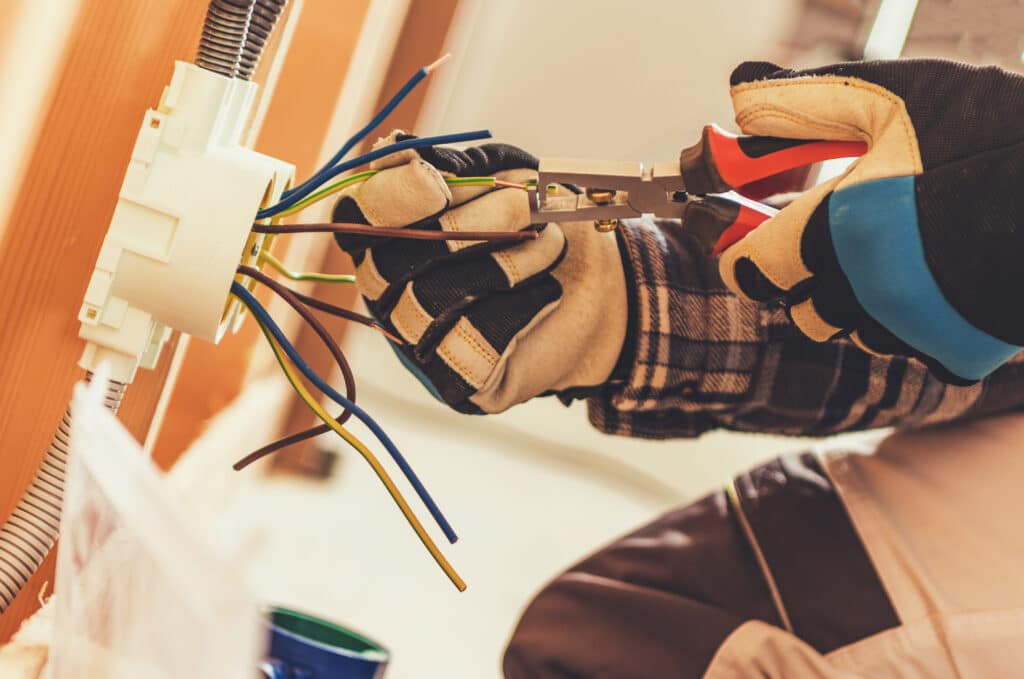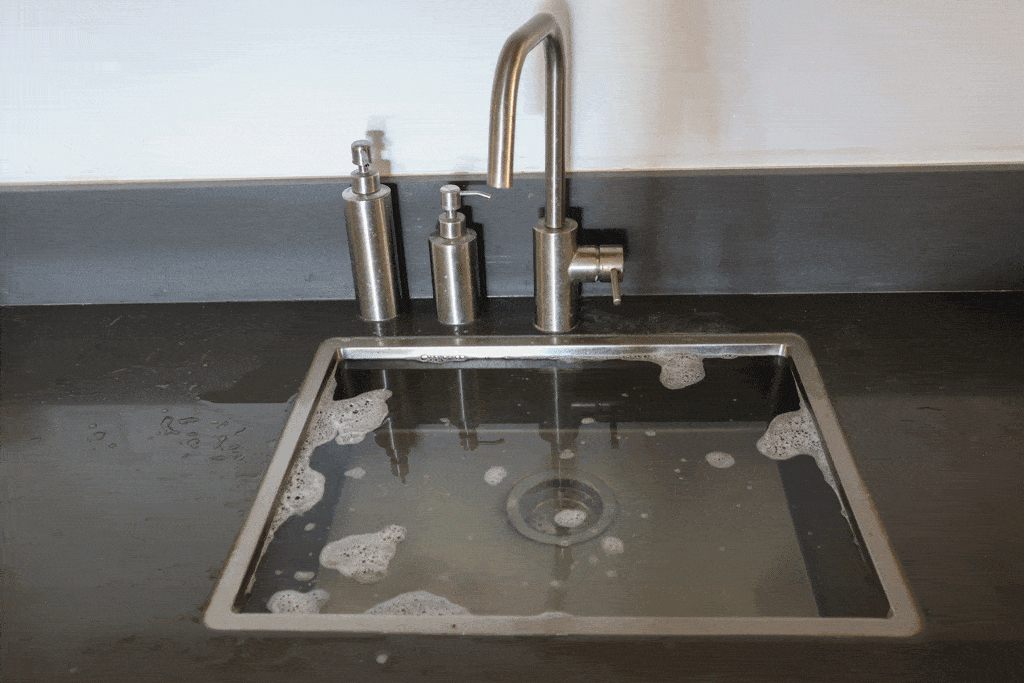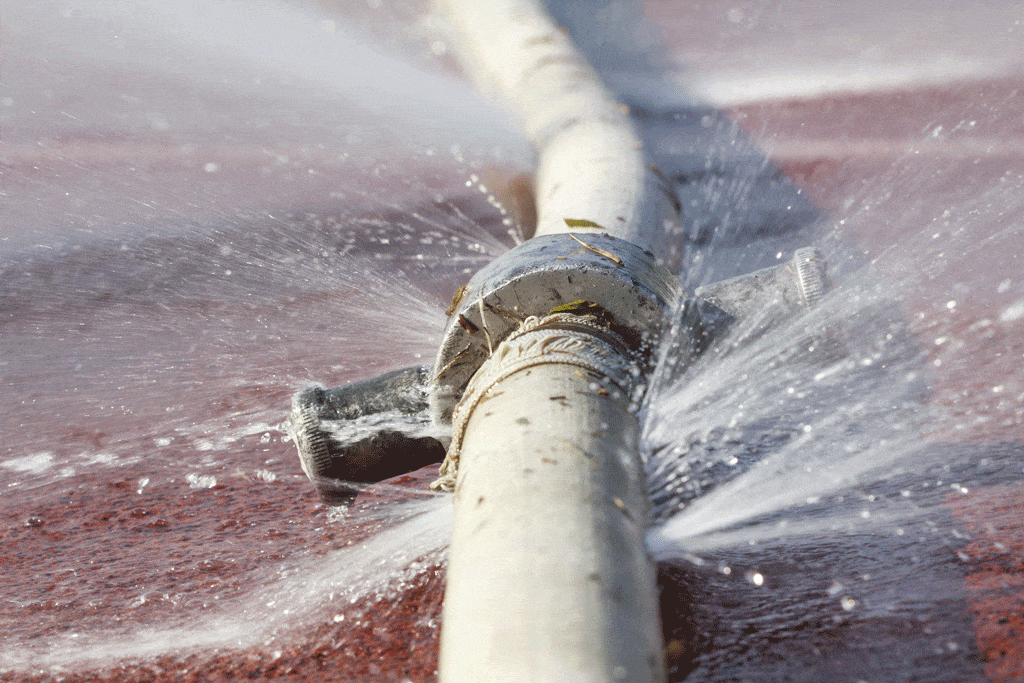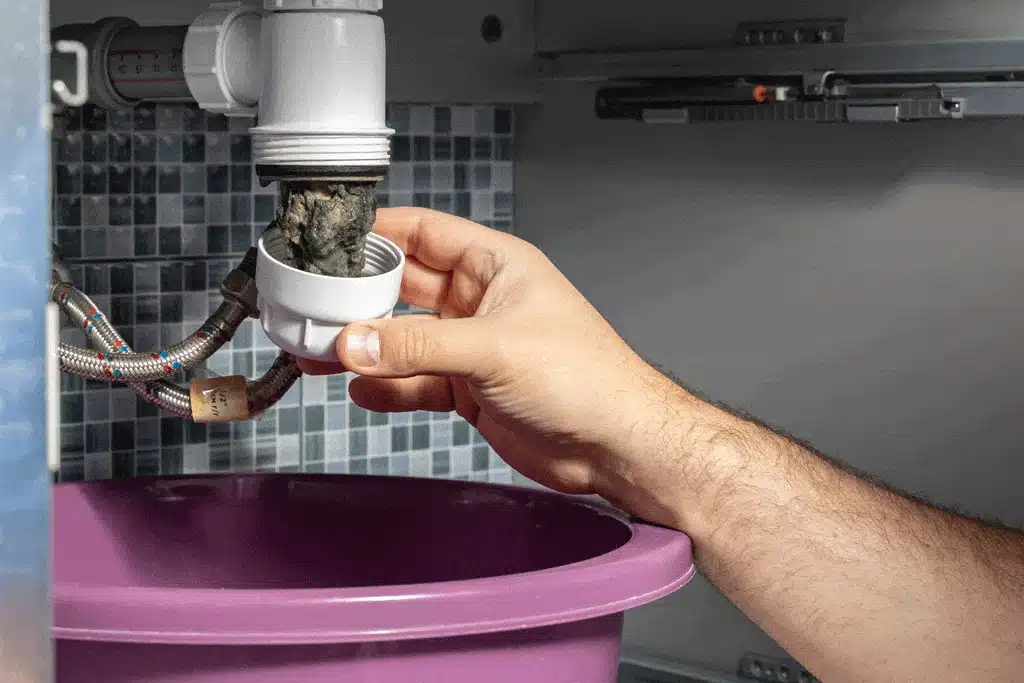What’s Cooking in Your Outdoor Kitchen? Let’s Talk about Safe and Efficient Outdoor Kitchen Electrical Wiring!
Outdoor kitchens are becoming a backyard staple in many homes. While grilling burgers and chilling drinks, have you considered the heart behind the fun—the electrical wiring?
Ensuring your outdoor kitchen has proper electrical wiring isn’t just about convenience; it’s about safety and functionality.

Photo from iStock – Credit: Ukususha
Why Worry About Outdoor Kitchen Electrical Wiring?
Imagine this: You’re hosting a backyard barbecue. The grill is sizzling, the refrigerator is cooling your beverages, and the lights set the perfect evening mood.
Suddenly, a fuse blows. Everything shuts down—the fun, the food, and maybe even a bit of your pride as a host. The culprit? Improper electrical setup.
Outdoor kitchen electrical wiring demands precision. It must handle everything from appliances and lighting to entertainment systems without a hitch. Plus, it needs to be safe from weather elements and regular wear and tear.
Benefits of Proper Electrical Wiring
Adequate electrical wiring boosts the functionality of outdoor kitchens, supporting various appliances from grills to lighting systems without overloading the system. It also minimizes risks of electrical hazards, making your outdoor space safer for family and friends.
Common Electrical Appliances in Outdoor Kitchens
Outdoor kitchens typically house a variety of appliances:
- Grills and Smokers: For that perfect barbecue.
- Refrigerators and Beverage Coolers: To keep drinks and ingredients chilled.
- Sinks and Dishwashers: For easier cleanup.
- Lighting and Audio Systems: Enhancing ambiance and entertainment.
Safety Considerations for Outdoor Kitchen Electrical Wiring
Creating a safe and functional outdoor kitchen involves meticulous planning and careful consideration of electrical safety.
With appliances exposed to weather and often near water sources, ensuring the safety of your Outdoor Kitchen Electrical Wiring setup is paramount. Here are comprehensive safety guidelines to help safeguard your outdoor kitchen from electrical hazards.
Importance of GFCI Protection
Ground Fault Circuit Interrupters (GFCIs) are essential for any Outdoor Kitchen Electrical Wiring system, particularly in kitchens. GFCIs are designed to protect you from electric shock by monitoring the flow of electrical current in a circuit.
They quickly shut off the power if they detect any imbalance, which could indicate a leakage of current through a person.
This feature is crucial in wet areas, such as near sinks or beverage stations, where the risk of electrical shock is increased. Installing GFCIs can be a lifesaving decision for your Outdoor Kitchen Electrical Wiring.
Weatherproof Outlets and Coverings
To ensure your outdoor kitchen remains functional and safe through all types of weather, equipping it with the right weatherproofing features is essential.
Here’s how to tackle the environmental challenges faced by outdoor kitchens in Texas, including in areas like Hurst, TX, Keller, TX, Southlake, TX, and beyond, where varying weather conditions can test the durability and resilience of your outdoor electrical systems:
- Weatherproof Outlets: Choose outlets that are specifically designed for outdoor use. These have features such as waterproof covers that protect them from rain and sprinkler systems, helping to prevent water from entering the electrical system.
- Durable Coverings: Invest in high-quality covers that can withstand UV rays, temperature changes, and moisture. This ensures that internal components stay dry and functional regardless of the weather.
Avoiding Electrical Hazards
Strategic placement and proper installation of electrical components are key to reducing risks in Outdoor Kitchen Electrical Wiring:
- Distance from Water Sources: Always install electrical outlets and wiring at a safe distance from any water source to avoid accidental electrocution.
- Proper Grounding: Ensure that all Outdoor Kitchen Electrical Wiring systems are properly grounded. This protects not only your appliances and electrical system but also everyone who uses the space.
Selecting Electrical Components
Choosing the right components can enhance the safety and efficiency of your Outdoor Kitchen Electrical Wiring:
- Tamper-resistant Receptacles: These receptacles prevent accidents by blocking foreign objects from being inserted into the outlets, adding an extra layer of safety for families with children.
- UV-resistant Wiring and Robust Conduits: Select wiring that is resistant to UV degradation to ensure longevity and safety. Conduits protect the wiring from physical and environmental damage, which is crucial in outdoor settings where exposure to the elements is inevitable.
- Accessible Switches and Controls: Position switches and controls in locations that are shielded from direct weather exposure yet remain easily accessible for everyday use. This convenience increases safety by ensuring that electrical controls can be quickly accessed in case of an emergency.
Step-by-Step Installation Guide for Outdoor Kitchen Electrical Systems
Proper installation is essential for the functionality and safety of your Outdoor Kitchen Electrical Wiring system. Here is a detailed guide to ensure that the electrical setup is correctly installed:
Checking the Circuit Board
Begin by evaluating your home’s main electrical panel to ensure it can handle the added load of your outdoor kitchen. This is crucial as adding several high-power appliances could overload your existing system.
If the current panel is insufficient, consider upgrading to a higher-capacity panel that can safely accommodate the increased demand. This step prevents potential hazards like circuit overloads and electrical fires.
Planning the Route for Wiring
Carefully design the layout of the Outdoor Kitchen Electrical Wiring. This planning phase should focus on routing wires away from any areas that could pose a risk, such as high-traffic paths or zones prone to water splashes.
Additionally, try to minimize the length of exposed wiring to maintain safety and aesthetics. Use diagrams or blueprints to map out the wiring routes before any physical installation begins.
Installing Conduits and Running Wires
Install robust conduits to protect and house the wiring as it extends to various components of your outdoor kitchen. Conduits are essential for protecting wires from environmental damage and physical harm, ensuring the longevity and reliability of your Outdoor Kitchen Electrical Wiring infrastructure.
Make sure that these conduits are securely fastened and properly sealed to prevent any exposure to moisture or physical impact.
Following these steps will help you establish a safe and efficient electrical system for your outdoor kitchen, ensuring that all appliances function optimally and the area remains safe for everyone to enjoy.
Wiring for Common Outdoor Kitchen Appliances
Proper electrical wiring is crucial for the safety and efficiency of appliances in your outdoor kitchen. Each type of appliance has unique requirements that must be met to ensure they operate reliably without causing electrical issues.
Grills and Smokers
These appliances are the powerhouses of many outdoor kitchens, often requiring high wattage to function effectively. It’s essential to use heavy-duty wiring that can handle the high current demand.
This prevents circuit overloads, which can lead to power outages or even electrical fires. Ensuring that grills and smokers are on their own circuits will help manage the energy load and maintain safety.
Refrigerators and Freezers
Cooling appliances like refrigerators and freezers should also have dedicated circuits. This is crucial because power fluctuations can significantly impact their performance and efficiency.
Dedicated circuits help stabilize the power supply to these appliances, reducing the risk of motor damage and extending their lifespan.
Ovens and Cooktops
Similar to grills, ovens, and cooktops require robust wiring that can withstand high temperatures and energy requirements. The appropriate gauge and type of wire must be used to safely transport the necessary electricity to these appliances without overheating.
Blenders and Mixers
While smaller in size, blenders and mixers still demand proper electrical considerations. They should be connected to outlets that are capable of handling sudden surges in power usage, typically seen when these appliances start up.
This is important to prevent circuit breakers from tripping, which can disrupt the functionality of other kitchen appliances.
By carefully planning and implementing the correct wiring practices, you can ensure that each appliance in your outdoor kitchen performs optimally and safely, enhancing your cooking experience and overall enjoyment of the space.
Lighting Considerations for Outdoor Kitchens
Proper lighting is a crucial component of outdoor kitchen design, enhancing both functionality and safety. It transforms the usability of the space at night and ensures that all activities, from cooking to socializing, are safe and enjoyable.
Task Lighting for Cooking Areas
Task lighting is essential in any kitchen but becomes even more critical outdoors where natural light varies. Here’s how to effectively use task lighting in your outdoor kitchen:
- Overhead Fixtures: Install bright, directed lights such as pendant lights or track lighting over grilling areas, countertops, and preparation zones. These ensure maximum visibility and reduce the risk of accidents.
- LED Fixtures: Choose high-quality LED fixtures that provide bright, focused light. LEDs are energy-efficient and long-lasting, making them ideal for outdoor environments.
- Under-Cabinet Lighting: If your outdoor kitchen features cabinetry, installing under-cabinet lighting can help illuminate the countertop areas without the light being too harsh or direct.
Ambient Lighting for Seating Areas
Ambient lighting sets the mood for your outdoor space and provides a gentle light that enhances the overall aesthetic of your outdoor kitchen. Consider these options for creating a welcoming environment:
- String Lights: Drape string lights overhead or around the perimeter of the seating area to create a cozy and inviting ambiance.
- Solar-Powered Lanterns: Utilize solar-powered lanterns to add a soft glow to dining areas or pathways without the need for electrical wiring.
- Integrated Landscape Lighting: Incorporate lighting into landscaping elements such as bushes, trees, or garden paths. This not only lights up the kitchen area but also enhances the beauty of your outdoor space.
Dimmable Lighting Options
The versatility of dimmable lighting allows you to adjust the lighting based on the time of day and the type of activity occurring. Here are the benefits and uses of dimmable lighting in an outdoor kitchen:
- Adjustable Settings: Equip your outdoor kitchen with dimmable LED lights that can be adjusted to provide brighter light for cooking and food preparation or softer light for dining and relaxing.
- Remote Control Access: Many modern lighting systems come with remote controls or can be connected to smart home systems, allowing you to change lighting settings conveniently from anywhere in your yard.
- Mood Setting: Use dimmable lights to easily switch the atmosphere from a functional cooking space during meal prep to a serene and relaxing environment for entertaining guests in the evening.
By incorporating these lighting strategies, you can ensure your outdoor kitchen is not only functional but also a safe and pleasant environment for everyone to enjoy, day or night.
Maintenance and Troubleshooting for Outdoor Kitchen Electrical Wiring
Ensuring that your outdoor kitchen remains a reliable and safe entertainment space requires regular maintenance and effective troubleshooting. Here’s how to maintain the integrity and safety of your Outdoor Kitchen Electrical Wiring.
Annual Inspections
It is crucial to schedule at least one professional inspection per year with a qualified electrician who specializes in Outdoor Kitchen Electrical Wiring.
This routine check ensures that all electrical components, including wiring, fixtures, and appliances, are functioning properly and adhere to safety standards.
An electrician can identify potential issues before they escalate into serious problems, keeping your outdoor kitchen ready and safe for use at all times.
Common Issues and Solutions
Stay proactive in managing common electrical issues such as flickering lights or malfunctioning outlets, which can indicate more significant problems like loose connections or damaged wires within your Outdoor Kitchen Electrical Wiring.
Addressing these issues promptly prevents them from worsening and helps maintain both the safety and functionality of your outdoor kitchen.

Photo from iStock – Credit: welcomia
Professional Installation: A Must-Do
For residents in Keller, TX, and surrounding areas, hiring a professional for the installation of outdoor kitchen electrical wiring is a must. This isn’t just for meeting local building codes; it’s about ensuring that every wire, outlet, and switch operates safely and efficiently.
When to Call an Electrician
Always engage a professional for initial installations, significant upgrades, or major repairs related to your Outdoor Kitchen Electrical Wiring. This ensures that the work is completed correctly and complies with safety standards and local building codes.
An electrician is also crucial for tasks involving the home’s main power system or complex outdoor wiring scenarios.
Finding a Licensed Professional
Select an electrician who is licensed and has experience with outdoor kitchen projects. Such professionals will have a deep understanding of the specific challenges and requirements of outdoor electrical systems.
A licensed professional ensures that all work is up to code and maximizes the safety and efficiency of your installation.
Professionals like Tioga Plumbing & Electric can assess your specific needs and environment, ensuring that your outdoor kitchen is powered correctly for that perfect weekend gathering or a relaxing evening.
Local Codes and Regulations
Understanding and adhering to local electrical codes is essential for any Outdoor Kitchen Electrical Wiring project, especially in areas like Hurst, TX, Keller, TX, and Southlake, TX.
These codes ensure safety and are tailored to specific local conditions, covering wiring types, protection measures, and appliance installations.
Before starting your project, make sure that your electrician checks these codes to ensure compliance and safety in Hurst, Keller, Southlake, and beyond. By maintaining these standards, your outdoor kitchen will be a safe, enjoyable space for all your gatherings.
Light Up Your Outdoor Kitchen with Expert Wiring!
Building an outdoor kitchen is an exhilarating addition that not only enhances your home’s value but also amplifies your enjoyment.
By prioritizing proper Outdoor Kitchen Electrical Wiring, you guarantee both functionality and safety in this vibrant space. Don’t forget, the expertise of professionals like Tioga Plumbing & Electric is just a call away.
Elevate your outdoor space and transform your gatherings into memorable events. Ready to light up your evenings? Contact Tioga Plumbing & Electric today and let us help you electrify your outdoor experience.
FAQS
What is the best way to protect outdoor kitchen electrical wiring from weather elements?
To protect electrical wiring in outdoor kitchens, use weatherproof outlets and durable coverings. Ensure that all wiring is enclosed in robust conduits that shield against environmental damage such as moisture and UV rays. Additionally, using weatherproof outlets that come with protective covers helps prevent water ingress and minimizes exposure to harsh weather conditions.
How often should the electrical system of an outdoor kitchen be inspected?
It is advisable to have the electrical system of an outdoor kitchen inspected at least once a year by a qualified electrician. This regular check helps identify potential issues early on, ensuring that all components, including wiring, fixtures, and appliances, are in good working condition and meet safety standards.
Why is it important to use a licensed electrician for outdoor kitchen installations and repairs?
Using a licensed electrician for installing and repairing Outdoor Kitchen Electrical Wiring is crucial because it ensures that all work is done correctly and complies with local building codes and safety standards. Licensed professionals have the necessary training and experience to handle the unique challenges of outdoor electrical systems, providing peace of mind that your kitchen is safe and functional.
What are the signs of electrical problems in an outdoor kitchen?
Signs of electrical problems in an outdoor kitchen include flickering lights, tripping circuit breakers, non-functioning outlets, and any unusual buzzing or burning smells from electrical components. These issues can indicate more significant problems such as loose connections, overloaded circuits, or damaged wires, and should be addressed promptly by a professional.
How can I ensure my outdoor kitchen is compliant with Texas electrical codes?
To ensure compliance with Texas electrical codes, work with a licensed electrician familiar with local regulations. These codes often specify the types of wiring, protection needed, and installation standards for fixtures and appliances in outdoor kitchens. Regular inspections and adherence to these codes will help maintain the safety and legality of your outdoor kitchen’s electrical setup.
Taking a bite out of Your Plumbing & Electrical needs
Other Electrical & Plumbing Services

Taking a bite out ofYour Plumbing & Electrical needs
We make fixing your home easier than ever. Whether it’s a leaky pipe, faulty wiring, or an urgent repair, our experts deliver fast, reliable solutions you can count on.
















